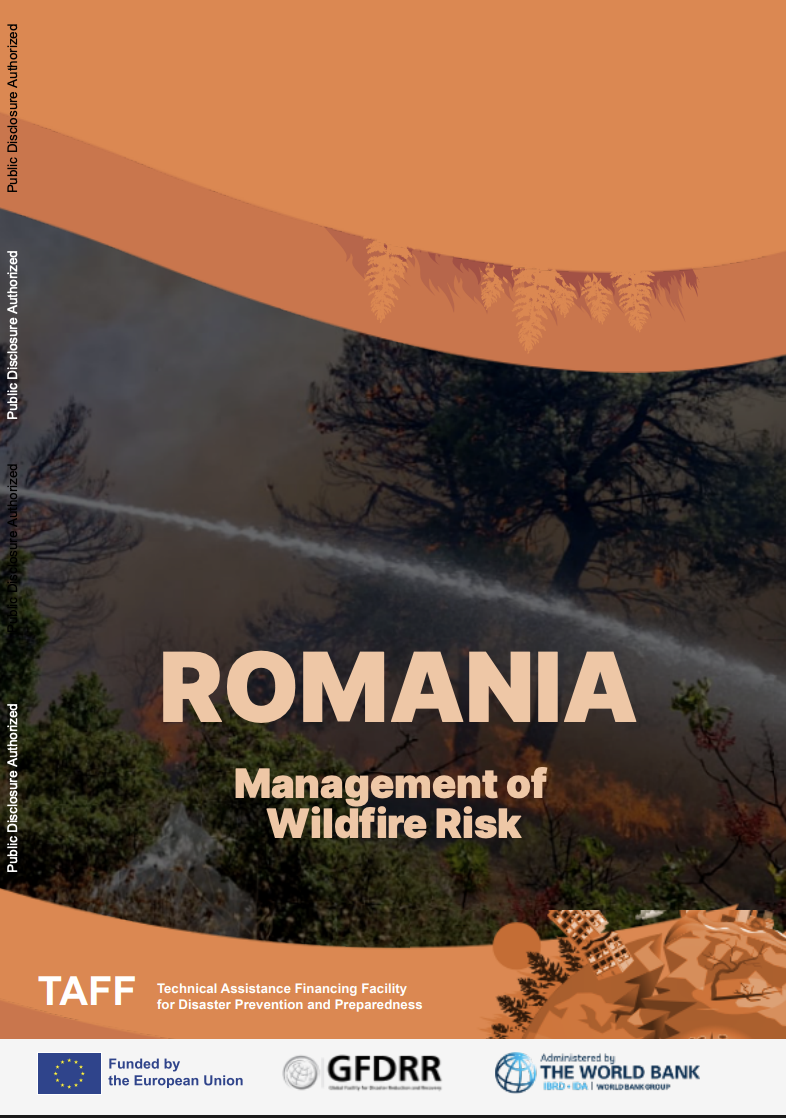Romania faces rising wildfire risk, with both frequency and impact expected to intensify. In 2021, Romania was identified as one of the countries in the European Union (EU) most affected by wildfires. Despite the country's temperate continental climate, which generally reduces wildfire risk, human activities have contributed to increasing incidents. Uncontrolled burning of dry vegetation, pastures, and stubble near forests is the main source of these incidents, driven by a lack of awareness and low-risk perception among farmers. Romania has experienced significant wildfire damage, particularly in protected areas like the Danube Delta Nature Reserve, in 2019 and 2020, and Domogled-Valea Cernei National Park, in 2013, with extensive burned areas threatening biodiversity and critical infrastructure. Rural depopulation and shifts in forest ownership have led to unregulated land management practices requiring reforms and targeted investments across different elements, including understanding wildfire risk, prevention, preparedness, response, and resilience recovery. However, Romania has a timely opportunity to invest in wildfire management capacity, as this emerging risk is intensifying, and ongoing reforms, such as those in the forestry sector, are creating a favorable environment for strategic improvements and alignment. This report summarizes the results of a rapid review of wildfire risks, risk management capacity, investment needs, and key approaches proposed for Romania to inform policy dialogue and future research. Capacity considers risk governance, understanding of risk, risk reduction and mitigation, preparedness and early warning, response, recovery, reforestation, reconstruction and post-disaster financing, and cross-cutting topics such as social resilience, social protection, inclusion, and the private sector. Each section reviews the current arrangements, including challenges, as well as key opportunities for improvements relevant to Romania. In this way, this report can inform national and EU decision-making and contribute to ongoing policy and investment dialogue as well as future research.

